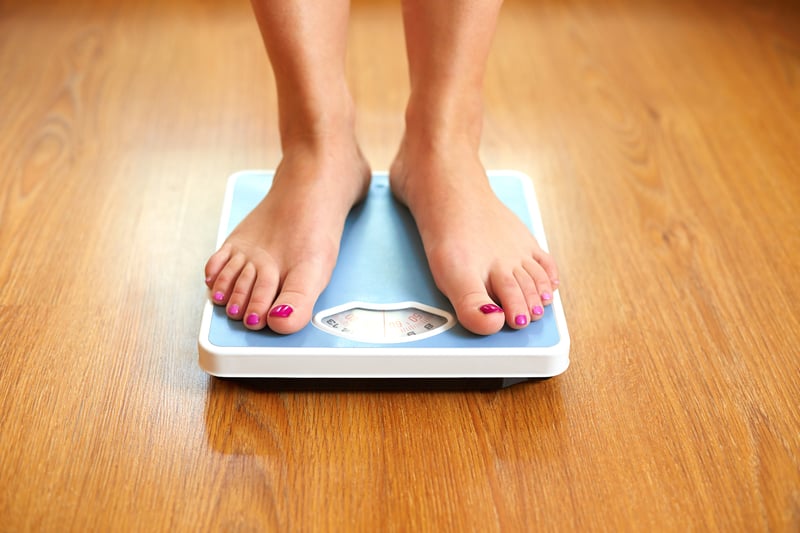3 Sneaky Ways to Reset Your Metabolism As You Age

Once you reach a “certain age”—typically somewhere around 40—you start to hear whispers about how your body will change and even begin to betray you. It’s harder to lose weight. Joints begin to creak, crack, and groan (not to mention swell and ache). Fat begins to pad every surface. And your metabolism becomes slower than a sloth doing paperwork. But are you really doomed? Can you reset your metabolism as you age?
Let’s be honest; if we’re lucky, we’ll all hit 40, 50, 60…heck, even 90, eventually. Yes, aging is inevitable. At least it’s better than the alternative, right? But what about your body and your metabolism? Are the changes really inevitable as you age? Or, are there factors well within your control that allow you to defy the odds?
While it’s easy to blame age—and it’s true that some changes may slow us down (a little)—in reality, it’s more likely a sedentary lifestyle that’s the culprit when it comes to the so-called age-related decline in metabolism. For starters, inactivity means moving less, and that means burning fewer calories. What’s more, as we become more inactive, our body composition begins to change—for the worse. We lose calorie-burning lean muscle, and that directly contributes to a lower metabolic rate.
Yet within the problem lies the solution. Here are 3 easy ways you can reset your metabolism, starting today.
3 Ways to Reset Your Metabolism
Eat
Diet (wait, did I just hear a collective groan?) certainly plays a part when it comes to metabolism. But don’t worry. We’re not going to tell you to start a new diet that severely restricts calories, which can actually slow metabolism—a lot, in fact. Of course, the foods you eat matter. For example, a higher protein diet is going to help support a healthy metabolism and help preserve that precious calorie-burning lean muscle.
But the point is that you can’t restrict your way to a healthy metabolism. Rather, to reset the metabolism, you need to eat MORE. Before you get too excited and head to your favorite bakery to “reset your metabolism,” there’s actually a method to the madness here. See, when you eat, your body burns calories; it’s called the thermic effect of feeding (TEF). Of course, when you exercise, you also burn calories. When you combine the two, the magic happens. Research shows that when folks simultaneously increase physical activity and food intake (called a “high energy flux”), they experience an unexpected increase in metabolic rate; in other words, they burn off even more calories than expected. Pretty cool trick!
Coach Joel Marion recently shared how something known as G-Flux can help you skyrocket your metabolism. In Joel’s example, you burn 2,000 calories per day. But rather than using diet alone to create a 500-calorie deficit (eating 1,500 calories a day), he suggests you eat 300 MORE calories a day. (Yes, you read that right.) At the same time, you’ll also want to increase your exercise to burn an extra 800 calories. You’ll enjoy a 500-calorie deficit but increase your metabolism at the same time. Winner!
Drink
Whatever you’re doing right now, stop and go grab a large glass of water. Why? Because research has shown that when people drink 17 ounces of water, their metabolism can skyrocket by 30% within just 10 minutes. I’ll drink to that!
Dehydration, on the other hand, can have the opposite effect. Considering that many of us don’t drink nearly enough water—often less than 32 ounces per day—this seems like a super-simple, metabolism-boosting strategy. At the end of the day—actually, throughout the day—you’ll want to shoot for 8 to 10 eight-ounce glasses of water to keep your metabolism moving along.
And Be Merry
I certainly wouldn’t say we live in the worst of times. Most of us live fortunate, happy, and healthy lives. We might, however, be living in some of the craziest times. Crazy busy, crazy stressful, and sometimes just flat-out crazy. What’s even crazier is that some of us seem to take pride in all the craziness.
Unfortunately, chronic craziness and the stress that comes along with it can have some pretty ugly effects on metabolism (and health in general). In fact, the stress hormone cortisol can increase fat storage, especially in the abdominal area, and as you’ve probably experienced, stress also tends to increase the likelihood of making poor decisions when it comes to what and how much you put in your mouth.
So, the key to reset your metabolism; remember to relax and enjoy life.
Oh, when it comes to relaxation, we have to mention sleep. If you think somewhere between four to six hours is plenty for you, you aren’t doing your metabolism any favors. In one study, researchers discovered that folks who tried to get away with sleeping a mere 5 ½ hours a night lost 55% LESS body fat and 60% MORE calorie-burning lean muscle compared to study participants who slept 8 ½ hours. Even more interesting is that both groups ate the same diet. So, if you want to reset your metabolism (ad get it running), slow down, get those 7 to 9 hours of shuteye, and reduce stress.
Over the years, many of us have relied on well-intentioned, yet not-so-good, advice, which has ultimately done our metabolism no favors. Raise your hand if you restricted calories (to lose weight) and sleep (to get more done), yet also overindulged in stress and neglected activity, to pursue “more important” endeavors. Fortunately, it’s never too late to reset your metabolism with this simple advice: eat, drink, and be merry.







